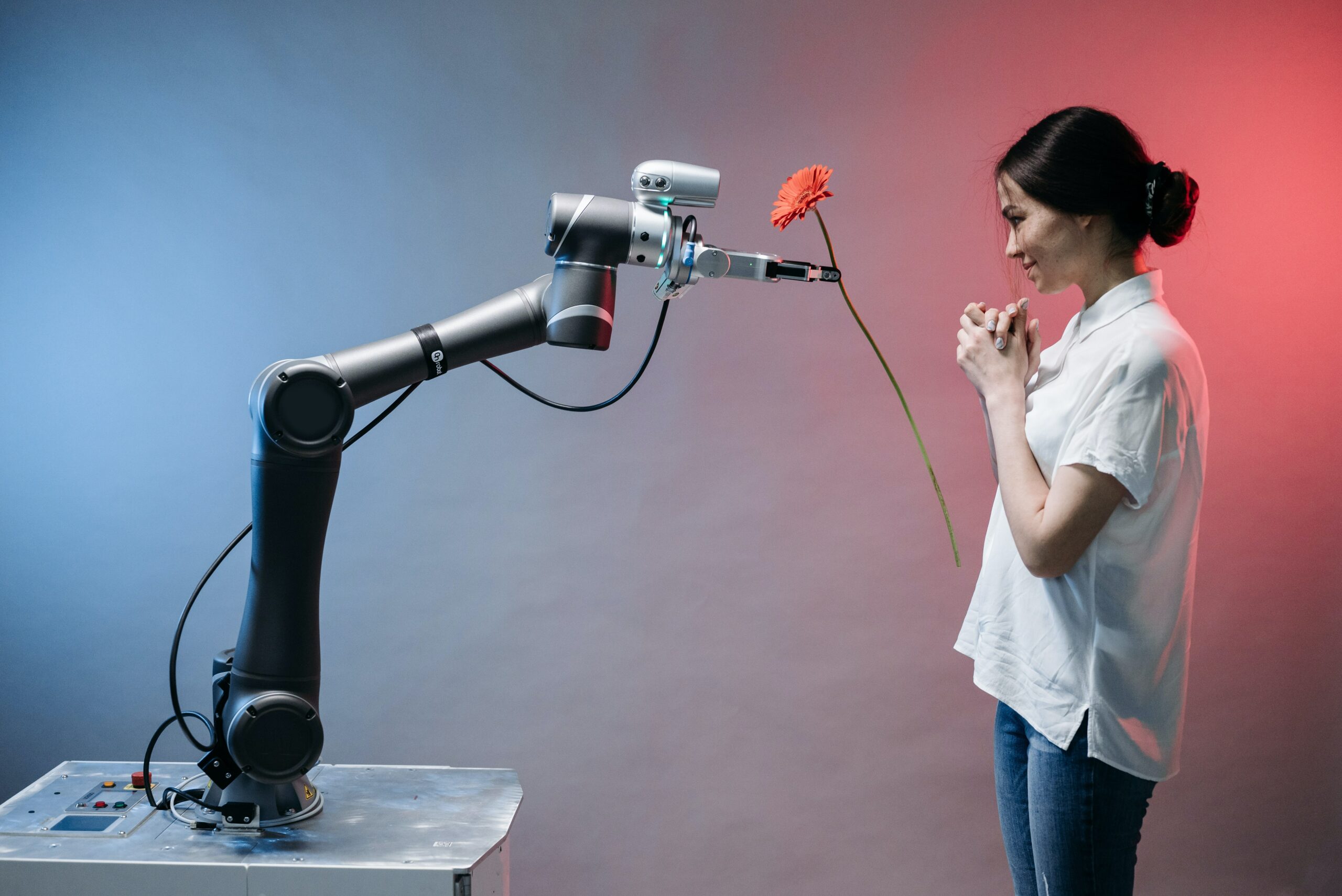As the Co-Founder of jeex.ai, I am deeply immersed in the exciting world of artificial intelligence, where the concept of Artificial General Intelligence (AGI) continues to intrigue both enthusiasts and experts. In this article, we will explore the elusive realm of General AI, commonly referred to as AGI, and its complex journey towards realization.

Photo by Pavel Danilyuk: https://www.pexels.com/photo/a-woman-smelling-a-red-flower-while-staring-at-a-robot-8438982/
The Essence of General AI
General AI, or AGI, is the ultimate goal of AI development, aiming to imbue machines with human-like intelligence, encompassing learning, adaptation, and versatility. While it’s an enticing prospect, we must acknowledge that AGI transcends the boundaries of our current AI capabilities.
Characteristics of General AI
The key features of AGI that distinguish it from specialized AI systems include adaptability, autonomy, continuous learning, and creativity. AGI is envisioned as a machine that seamlessly transitions between diverse tasks, making informed decisions, and even exhibiting creativity in problem-solving.
The Potential of General AI
- The potential applications of AGI are vast and transformative. In my role as a Co-Founder of an AI startup, I’ve witnessed how AGI could reshape industries:
- Medicine: AGI can analyze vast medical datasets, aiding in diagnosis, recommending personalized treatments, and accelerating drug discovery.
- Education: AGI’s adaptive learning capabilities could revolutionize education by tailoring content to individual students, enhancing engagement, and improving outcomes.
- Autonomous Systems: AGI-powered autonomous vehicles, robots, and drones could revolutionize transportation, logistics, and manufacturing, enhancing safety and efficiency.
- Research: AGI’s ability to process and analyze data at unprecedented speeds could lead to groundbreaking discoveries in scientific research.

Photo by Pavel Danilyuk: https://www.pexels.com/photo/a-robot-holding-a-flower-8438964/
Challenges and Ethical Considerations
- As we venture towards AGI, several challenges and ethical considerations loom large:
- Complexity and Technical Challenges: Replicating human-like intelligence is an intricate task, requiring advancements in algorithms, architectures, and hardware far beyond our current capabilities.
- Massive Data and Computation: AGI demands exponentially more data and computational power, posing logistical and cost challenges.
- Lack of Fundamental Understanding: Our limited understanding of human intelligence hampers effective AGI design.
- Ethical and Safety Concerns: Ensuring AGI behaves ethically and safely is a significant challenge, given its potential unpredictability.
- Resource Constraints: AGI development necessitates interdisciplinary collaboration and substantial resources, which may pose obstacles.
- Unforeseen Roadblocks: Historical precedent shows that technological breakthroughs encounter unforeseen obstacles, which may delay AGI progress.

Photo by Pavel Danilyuk: https://www.pexels.com/photo/a-robot-holding-a-wine-8439094/
Conclusion
While AGI remains a tantalizing goal, it’s crucial to temper expectations with realism. I understand the potential and limitations of current AI technologies. The path to AGI is fraught with complexity, ethical dilemmas, and resource challenges. It will require unwavering commitment, global collaboration, and careful ethical consideration to navigate this journey successfully.
In conclusion, AGI is not an imminent reality, but a long-term aspiration that will continue to drive innovation and exploration in the AI field. I remain committed to pushing the boundaries of AI while staying grounded in the practical realities of the present.
